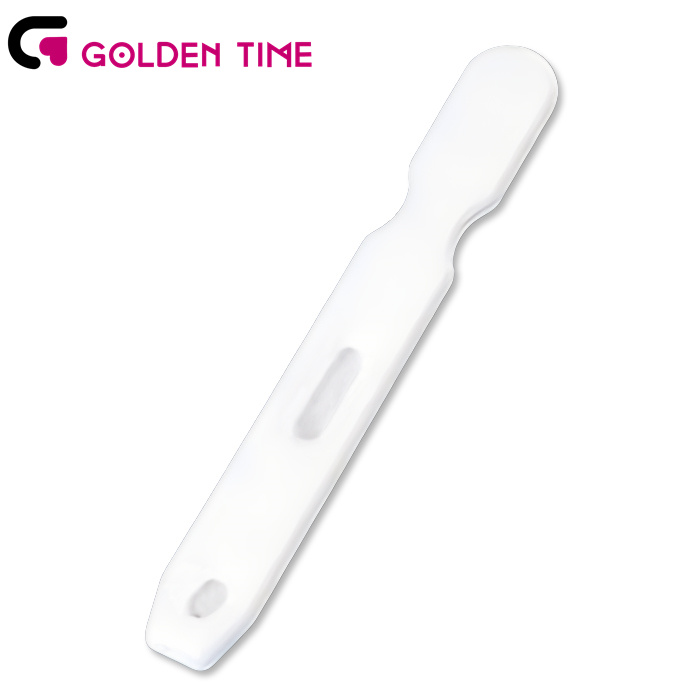Dec . 18, 2024 02:44 Back to list
Wholesale HIV 1 and 2 Antigen Antibody Testing Solutions for Healthcare Providers
Understanding the Wholesale Market for HIV 1/2 Antigen/Antibody Tests
The global fight against Human Immunodeficiency Virus (HIV) has seen significant advancements in testing technologies, particularly in the development of HIV 1/2 antigen/antibody tests. These tests are integral in the early detection of HIV, allowing for prompt medical intervention and ultimately reducing the spread of the virus. As the demand for these tests increases, the wholesale market for HIV 1/2 antigen/antibody tests is evolving rapidly, reflecting changes in technology, market dynamics, and regulatory frameworks.
The Importance of Early Detection
Early detection of HIV is crucial for the health of affected individuals and for public health as a whole. HIV tests can identify the virus within weeks after infection, long before symptoms appear. This aspect is critical, as timely diagnosis leads to earlier treatment, which can significantly improve the quality of life for individuals living with HIV, reduce transmission rates, and prevent the progression to Acquired Immunodeficiency Syndrome (AIDS). The HIV 1/2 antigen/antibody tests are designed to detect both the antibodies produced by the immune system in response to HIV infection and the antigen p24, which is part of the virus itself. This dual detection increases the likelihood of identifying HIV during the acute phase of infection.
The Wholesale Market Landscape
The wholesale market for HIV 1/2 antigen/antibody tests encompasses manufacturers, suppliers, distributors, and healthcare providers. A range of factors influences this market, including technological advancements, regulatory requirements, and market demand. The global push for improved healthcare access, especially in resource-limited settings, has led to increased investment in diagnostics, including point-of-care (POC) testing solutions.
Manufacturers are continually innovating to enhance test sensitivity and specificity while also making them more available and affordable. Many companies are now producing rapid test kits that can provide results in as little as 20 minutes. This is particularly vital in regions where conventional laboratory facilities are not readily accessible. The wholesale market thus becomes a pivotal link between manufacturers and healthcare providers, ensuring these essential tools can reach communities in need.
Regulatory Considerations
wholesale hiv 1 2 antigen antibody test

The wholesale distribution of HIV tests is subject to strict regulatory scrutiny. In many countries, regulatory agencies like the U.S. Food and Drug Administration (FDA) and the European Medicines Agency (EMA) mandate that these tests meet rigorous standards of safety, efficacy, and quality. The regulatory landscape can vary significantly from region to region, necessitating that wholesale suppliers navigate complex compliance protocols to bring their products to market.
In addition, international organizations such as the World Health Organization (WHO) provide guidelines on the procurement and distribution of HIV testing kits, further influencing the wholesale market. These guidelines help ensure that the tests being sold meet the necessary criteria for accuracy and reliability, contributing to better health outcomes for individuals being tested.
Market Challenges and Opportunities
Despite its growth, the wholesale market for HIV 1/2 antigen/antibody tests faces several challenges. Issues such as counterfeit products, supply chain disruptions, and fluctuating demand patterns can hinder market stability. Furthermore, during public health emergencies, such as the COVID-19 pandemic, the focus on other diagnostics can divert attention and resources away from HIV testing.
However, these challenges also present opportunities for innovation and improvement within the market. The development of more robust supply chain systems, increased promotion of test accessibility, and public awareness campaigns can contribute to an increase in testing rates. Additionally, partnerships between governments, non-governmental organizations, and private entities can further strengthen the market infrastructure.
Conclusion
The wholesale market for HIV 1/2 antigen/antibody tests plays an instrumental role in public health by facilitating early diagnosis and treatment of HIV. As we continue to combat the HIV epidemic, this market must adapt to emerging challenges while leveraging opportunities for innovation and collaboration. By ensuring the availability of high-quality testing solutions, we can work towards a future where HIV is no longer a public health crisis, but a manageable health condition. The collective efforts of manufacturers, regulators, healthcare providers, and communities are essential for achieving this goal, paving the way for a healthier world.
-
Dengue NS1 Rapid Diagnostic Test Kit
NewsMar.07,2025
-
Dengue NS1 Rapid Diagnostic Test Kit
NewsMar.07,2025
-
Dengue NS1 Rapid Diagnostic Test Kit
NewsMar.07,2025
-
Transferrin Rapid Test Cassette Tumor Marker TF Card
NewsMar.07,2025
-
Malaria Pf Pan Rapid Diagnostic Test Kit
NewsMar.07,2025
-
malaria pf / pan ag rapid test
NewsMar.07,2025

